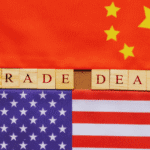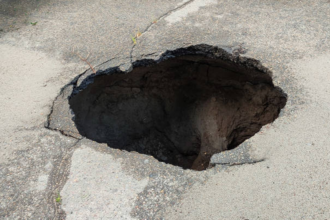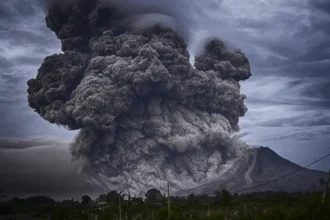One of the most delicate and divisive issues in South Asian politics has been Kashmir mediation. Both India and Pakistan, both of whom claim the territory in whole but only use it in part, have long-standing territorial conflicts centered on the area of Kashmir. India has steadfastly opposed any outside mediation of this dispute for decades. Recent remarks made by US President Donald Trump, who volunteered to arbitrate between the two countries, however, questioned this stance and generated intense discussion. India is firmly against even while Pakistan supports foreign intervention. The question now becomes: will efforts at Kashmir mediation result in a breakthrough, or will they aggravate the situation?
The Kashmir Conflict: Historical Context
The split of British India in 1947 marks the beginning of the Kashmir mediation dispute. Both India and Pakistan asserted the Kashmir territory when they were founded. During the division, the princely state of Jammu and Kashmir, which had a predominantly Muslim population but was under a Hindu Maharaja’s rule, became the central focus of the conflict. Following this, the area was split along the Line of Control (LoC), with India controlling roughly 55% and Pakistan 35%. This resulted in the first Indo-Pakistani conflict in 1947–1948. Still under Pakistan’s authority is the remaining land, including the strategically important Gilgit-Baltistan.
India and Pakistan have waged several wars and had many rounds of negotiations throughout the years. While Pakistan has insisted on a vote allowing Kashmiris to decide their fate, India has always considered Kashmir as a natural component of its territory. Notwithstanding various bilateral treaties, including the Simla Agreement in 1972, the matter has remained unsolved, and India has regularly turned down the possibility of third-party mediation.
The basis of India’s position is both strategic and historical. Regarding the Kashmir issue especially, it has seen any kind of foreign engagement as an attack on its sovereignty. Any offer of Kashmir mediation has so been turned down automatically. Maintaining control over Kashmir is non-negotiable for India since it is viewed as essential for the national security and territorial integrity of the nation.
Why has India turned aside Kashmir mediation?
India’s long-standing belief that the conflict must be settled bilaterally, free from outside intervention, drives its hostility to Kashmir mediation. Following the conflict between India and Pakistan, the two nations signed the Simla Agreement in 1972, therefore confirming that all of their problems, including Kashmir, should be settled by bilateral talks and peaceful means. India’s diplomatic approach revolved mostly around this accord, which it has constantly maintained that third-party intervention would compromise its sovereignty over Kashmir.
Given its prior interactions with Pakistan, India has been very cautious of any mediation initiatives. Pakistan’s military has frequently sabotaged even civilian governments in Pakistan that show a readiness for communication. The Kargil war in 1999, in which militants supported by Pakistan controlled crucial portions of Indian-administered Kashmir despite continuous peace negotiations, is a classic case study of this. This treachery has made India more dubious of any mediation that compromises its territorial integrity.
Furthermore, India contends that any international involvement would inspire Pakistan to globalize the Kashmir conflict more, therefore compromising India’s political interests and security. India’s posture is clear: it is ready to interact with Pakistan, but it stresses that such negotiations should take place bilaterally, free from intervention by any third-party. Read another article on the Kashmir Conflict
What does Trump's offer of Kashmir mediation mean?
The recent invitation to mediate between India and Pakistan on the Kashmir issue by President Trump has attracted a lot of interest and debate. Trump declared on social media that following days of heavy military exchanges, the United States had mediated a truce between India and Pakistan. He also proposed working with both nations to resolve the Kashmir problem over the long run. Following a period of increased tensions marked by airstrikes and missile exchanges throughout the two countries, this declaration arrived.
Trump’s remarks have been greeted in Pakistan as a possible breakthrough. Long seeking international mediation, Pakistan, especially given India’s mistrust of Pakistan, has Pakistani officials contend that the United States’ leadership of the international community ought to actively help to settle the Kashmir conflict. The executive director of Islamabad’s Center for Research and Security Studies, Imtiaz Gul, said that Trump’s readiness to arbitrate was a “moral victory” for Pakistan.
India has, however, voiced grave misgivings about any participation by other parties. Citing Pakistan’s sponsorship of cross-border terrorism, India’s government has declared it will not negotiate with Pakistan on Kashmir. Indian officials have underlined over and over again that the topic is a national security one and that third-party participation is unacceptable.
Subrahmanyam Jaishankar, India’s foreign minister, has been outspoken on India’s stance on Kashmir and its dedication to combat terrorism. India would keep fighting terrorism in all its manifestations, he said, and any effort to arbitrate on Kashmir would be perceived as ineffectual. This uncompromising posture indicates that India is not likely to welcome any foreign mediation initiatives since doing so would go against its long-standing foreign policy values.
Pakistan's Viewpoint on Mediating Kashmir
For Pakistan, the US’s offer of Kashmir mediation marks a long-awaited chance to get the Kashmir problem noticed worldwide. Pakistan has maintained time and again that bilateral conversations between India and Pakistan are useless without mutual trust. From Pakistan’s vantage point, outside mediation could assist to break the deadlock and bring about a peaceful outcome to the conflict.
Since Pakistan officials have long wanted the engagement of world powers in settling Kashmir, they have said that Trump’s remarks constitute a major diplomatic gain. They contend that with its superpower status and great influence, the United States might assist India and Pakistan toward genuine negotiations. Pakistan’s assistance of foreign mediation does not, however, come without difficulties since it also has to negotiate internal political dynamics and make sure that its military is not perceived as obstructing any peace attempts.
Trump’s engagement is likewise considered a chance for Pakistan to guarantee that Kashmir remains a global concern and to acquire influence on the global scene. This might even cause further diplomatic pressure on India to start negotiations. But as Pakistan has discovered in the past, outside pressure by itself might not be enough to bring about significant transformation unless India is ready to give up on its stance.
Strategic Interests of India and Mediating Kashmir
A number of strategic and diplomatic interests shapes India’s posture on Kashmir mediation. Rising global power India sees its sovereignty over Kashmir as non-negotiable. In order to offset China’s increasing influence in the Indo-Pacific area, Indian Prime Minister Narendra Modi’s government has adopted a more forceful foreign policy featuring closer connections to the United States. Aimed at resisting Chinese expansionism, India is a major participant in the Quadrilateral Security Dialogue (Quad), a partnership of the US, Japan, Australia, and India.
India cannot afford to come out as sacrificing on its territorial integrity, even if it has benefited from close diplomatic and commercial ties to the US. The government of India is unambiguously clear: it would not accept any kind of Kashmir mediation challenging its sovereignty. Simultaneously, India wants to keep a positive relationship with the US, particularly in the defense and economic domains. This careful balancing act has made India wary about accepting Trump’s offer since it runs the danger of internal reaction while preserving its strategic alliance with the US.
Approaching a harmonic conclusion
Though Kashmir mediation is complicated, India and Pakistan have to figure out how to lower tensions and advance toward a long-term fix. Although the global community, including the United States, can help to promote communication, any solution will finally rely on India’s and Pakistan’s readiness to participate in peaceful negotiations.
The course forward for the Kashmir conflict will depend on deliberate diplomacy, trust-building, and a dedication to address unresolved problems; the future of the conflict is yet unknown. Third-party mediation might provide a short fix for armed conflicts, but unless both nations are ready to make tough concessions, it is doubtful to bring about long-lasting peace.
What is next for Kashmir Mediation?
President Trump’s offer of Kashmir mediation is a fresh turn in the long-running conflict between India and Pakistan. Pakistan has embraced the concept of foreign intervention, but India is adamant about opposing outside participation. Although there are many difficulties on the path to peace in Kashmir, if both sides are ready to participate constructively, diplomacy could yet have a chance to succeed. Though it will be up to India and Pakistan to decide their future path, the international community can help.








